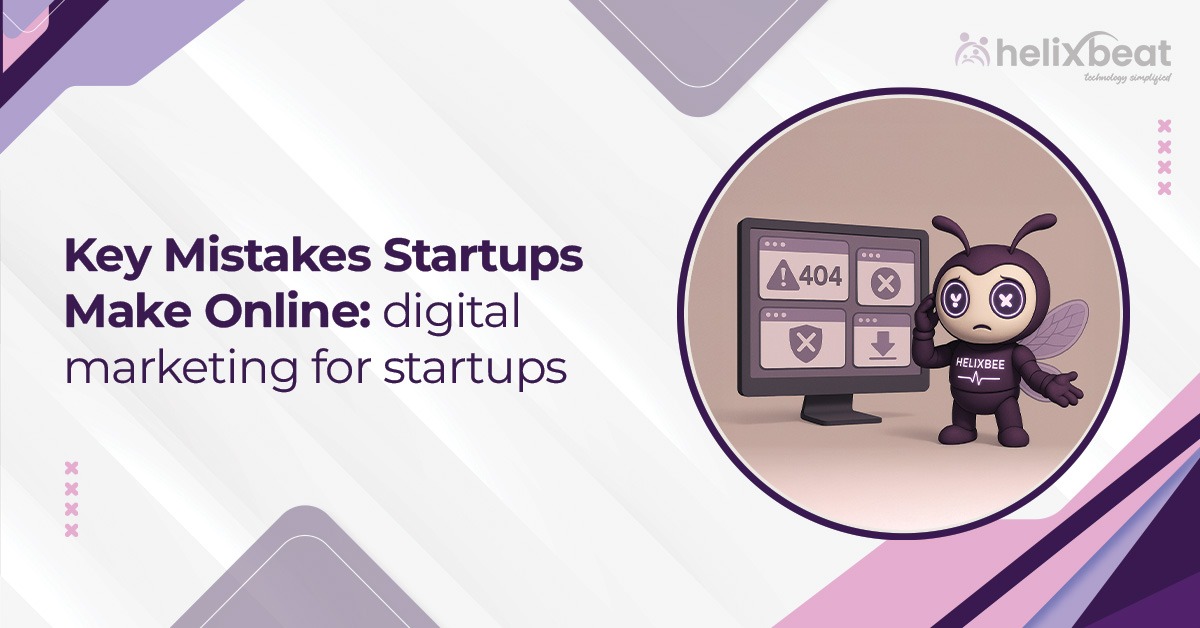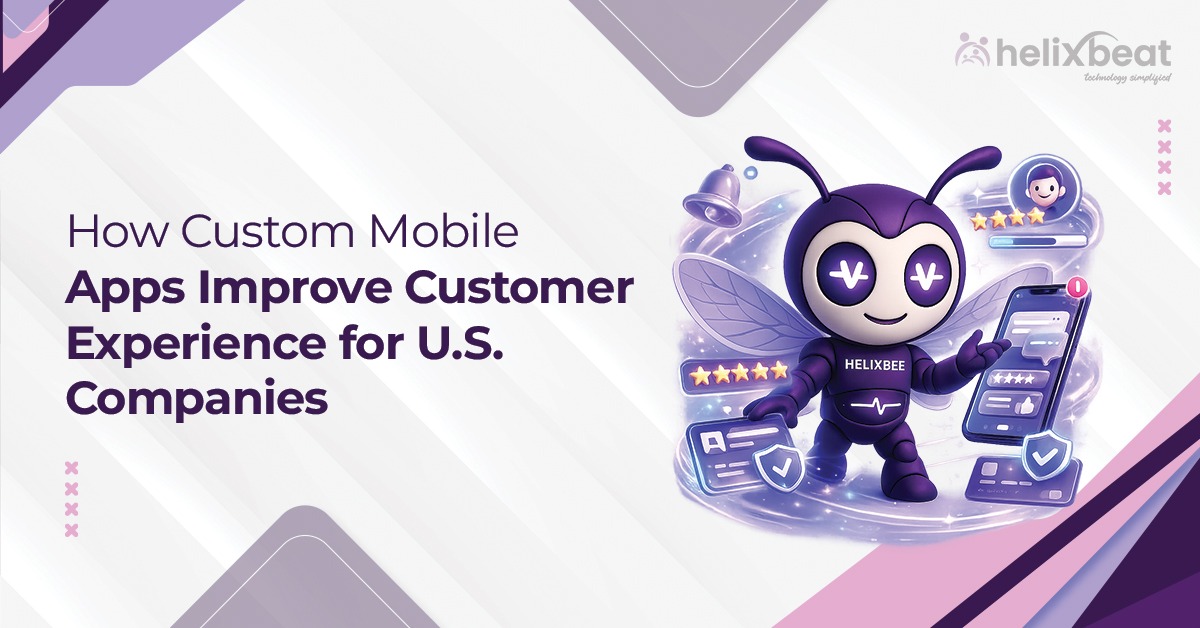In this section, we explore the common pitfalls in digital marketing that startups often encounter, categorizing them into two primary groups:
1. Strategic Mistakes
2. Content Creation Mistakes
Each group will offer actionable insights on how to correct these errors, helping startups optimize their marketing strategies and increase their return on investment. By tackling these typical issues, startups can improve their online presence and set themselves up for long-term success.

Table of Contents
Common Digital Marketing Mistakes Startups Make
Below are the digital marketing mistakes and solutions startups make:
2.1 Focusing Only on Paid Ads
- Many startups opt for paid advertising in hopes of quickly achieving results. While these ads can be effective, relying solely on them can hinder long-term growth.
Solution / Best Practice
- Invest in a mix of organic and paid tactics to build a well-rounded digital marketing strategy.
- Alongside paid ads, prioritize content marketing, social media, and SEO to improve long-term results.
- Utilize Google Ads and Facebook Ads for immediate traffic but focus on organic efforts to build brand authority over time. HelixBeat Digital
Marketing Service
- At HelixBeat, we help startups optimize both paid and organic digital marketing efforts.
- Our expert team crafts customized marketing strategies that balance immediate traffic generation with long-term growth strategies, ensuring that your business remains competitive in the ever-evolving digital landscape.
Want a strategy that delivers real results? Contact HelixBeat for a customized digital marketing plan that aligns with your startup’s needs.
2.2 Overlooking Content Marketing Strategy
- Content marketing plays a crucial role in SEO, brand visibility, and connecting with audiences.
- Startups that overlook this strategy often miss the chance to develop meaningful relationships with potential customers.
- A well-crafted content marketing approach not only boosts organic traffic but also helps in establishing credibility.
Solution / Recommended Approach
- Create a content calendar to consistently share blogs, articles, infographics, and videos that resonate with your target audience.
- Concentrate on addressing their challenges, providing value, and meeting their needs.
- Carry out keyword research to ensure that your content ranks effectively on search engines, directing more traffic to your website.
2.3 Lacking a Defined Online Marketing Strategy
- Without a solid online marketing plan, startups can get lost in a crowded digital landscape.
- A detailed strategy helps prioritize efforts and assess progress, ensuring alignment with business objectives.
Solution / Recommended Approach
- Develop a comprehensive online marketing strategy that outlines specific goals, identifies the target audience, and establishes measurable KPIs.
- Break your strategy into manageable milestones, such as enhancing website traffic, increasing social media interaction, or improving conversion rates.
- Regularly review and adjust your strategy based on the outcomes.
2.4 Neglecting Basic SEO Practices
- Many startups overlook fundamental SEO practices, which can significantly impact their search engine visibility.
- From keyword optimization to ensuring mobile friendliness, it’s essential to implement SEO fundamentals early to stay competitive.
Solution / Recommended Approach
- Make sure your website is optimized for SEO by concentrating on key factors such as keyword research, on-page SEO (like title tags and meta descriptions), and mobile responsiveness.
- Establish a solid internal linking strategy, acquire high-quality backlinks, and focus on technical SEO to improve site speed. Regularly refresh your content to stay relevant in search rankings.
2.5 Undervaluing Social Media Interaction
- Social media serves not only as a promotional tool but also as a platform for building connections.
- Startups that fail to engage with their followers on channels like Instagram, Twitter, and Facebook lose out on valuable opportunities to cultivate a loyal customer base.
Solution / Recommended Approach
- Prioritize authentic interactions with your audience on social media. Engage with comments, messages, and mentions, and interact with user-generated content.
- Share posts that encourage engagement, such as polls, quizzes, and questions. Use social media to connect with your audience, collect feedback, and strengthen customer loyalty.
How to Avoid These Mistakes?
3.1 Build a Strong Digital Marketing Foundation
Start with basic digital marketing tactics like SEO, social media engagement, and content creation. By laying the groundwork with these pillars, startups can create a solid foundation for sustained online growth.
Actionable Steps:
- SEO: Begin with keyword research and optimize your website’s on-page SEO (title tags, meta descriptions, headers).
- Use tools like Google Keyword Planner and SEMrush to identify valuable keywords.
- Social media: Set up and optimize your social media profiles. Engage with your audience by responding to comments, sharing relevant content, and running targeted ads on platforms like Facebook and Instagram.
- Content Creation: Develop a content calendar and start producing valuable blog posts, videos, or infographics that address your target audience’s pain points. Use Google Analytics to track the performance of your content.
3.2 Create a Well-Defined Content Marketing Strategy
Identify your target audience and their pain points. Tailor your content to offer solutions, such as blog posts, videos, and infographics. High-quality, applicable content increases organic traffic and helps with retention.
Actionable Steps:
- Audience Research: Use tools like Google Analytics and Facebook Insights to gather data on your audience’s interests and behaviors. Create customer personas to understand their needs better.
- Content Plan: Develop a content calendar with consistent topics that resonate with your audience. For example, if you’re a healthcare startup, write about health tips, patient stories, and the services you offer.
- SEO for Content: Optimize each piece of content for search engines by including targeted keywords naturally, using internal linking, and formatting content for readability (headers, bullet points).
3.3 Optimize Your Online Marketing Strategy for Long-Term Growth
Develop a balanced marketing approach. Don’t rely solely on short-term tactics like paid ads. Consider a holistic online marketing strategy that includes SEO, content marketing, and social media to build a lasting brand presence.
Actionable Steps:
- Long-Term Planning: Set clear, measurable goals for your digital marketing efforts (e.g., increasing organic traffic by 25% in 6 months). Break them down into actionable tasks.
- Diversify Channels: While paid ads may be necessary for short-term results, balance them with SEO efforts (e.g., focus on building backlinks) and consistent content marketing to create long-term value.
- Performance Tracking: Use tools like Google Analytics and social media analytics to track the performance of your campaigns. Adjust your strategy based on what works best over time.
Don’t let your startup get lost in digital noise. Sign up for a demo and discover how HelixBeat can help you attract more customers and grow your brand effectively.
Final Insights
In 2025, digital marketing will become increasingly vital for startups. We recognize that as a startup, you’re managing various responsibilities and encountering distinctive challenges, such as limited resources, constrained budgets, and the need for quick results. This can be daunting, particularly when dealing with the intricacies of online marketing. However, by steering clear of the common pitfalls discussed in this blog, you can establish a solid foundation for sustainable success.
Effective digital marketing for startups involves a strategic mix of SEO, content marketing, and paid advertising. At HelixBeat, we don’t merely offer services; we collaborate with you, understanding your challenges and providing customized solutions to meet your specific needs.
If you’re eager to enhance your approach and take your startup to the next level, contact our digital marketing specialists at HelixBeat today for a demo! Together, we will map out a strategy that addresses immediate hurdles and positions you to endure success in the digital arena.
FAQs
- What is digital marketing for startups?
Digital marketing for startups involves using online strategies such as SEO, content marketing, social media, and paid ads to promote a startup’s brand, reach customers, and generate leads.
- Why is digital marketing important for startups?
Digital marketing helps startups reach a wider audience, build brand awareness, and compete effectively in a crowded market. It also allows startups to target specific audiences and track campaign results in real-time.
- What are common digital marketing mistakes startups make?
Some common mistakes include neglecting SEO, focusing only on paid ads, ignoring content marketing, not having a clear online strategy, and failing to engage on social media.
- How can startups avoid digital marketing mistakes?
Startups can avoid mistakes by creating a balanced marketing strategy, focusing on long-term growth, ensuring their website is SEO-friendly, using social media to engage with customers, and developing a robust content marketing plan.
- What is the role of SEO in digital marketing for startups?
SEO helps startups rank higher on search engines, increasing their visibility and driving organic traffic to their websites. A solid SEO strategy ensures that a startup’s website is easily found by potential customers.
- How does content marketing help startups grow?
Content marketing helps startups engage their audience by providing valuable, informative content. It builds trust, improves SEO rankings, and keeps customers coming back for more.
- Should startups focus on paid ads?
Paid ads can be effective, but startups should avoid relying solely on them. A balanced approach that includes organic strategies like SEO and content marketing is essential for long-term growth.
- How can social media help startups in digital marketing?
Social media allows startups to engage directly with their audience, build relationships, and promote their products or services. It’s an excellent platform for brand building and customer interaction.
- How can startups improve their local SEO?
Startups can improve local SEO by optimizing their Google My Business profile, using location-based keywords, and engaging with local customers through content and social media.
- What is the best digital marketing strategy for startups?
The best strategy includes a combination of SEO, content marketing, social media engagement, and paid ads. Startups should focus on their target audience, optimize mobile devices, and track their campaigns for ongoing improvements.
- When should startups hire a digital marketing agency?
Startups should consider hiring a digital marketing agency when they lack the expertise or resources to manage their marketing campaigns in-house. An agency can provide specialized knowledge and help execute more effective strategies.
- How can Helixbeat help startups with digital marketing?
Helixbeat offers tailored digital marketing services, including SEO, content creation, and social media management, to help startups grow their online presence and reach their business goals.














